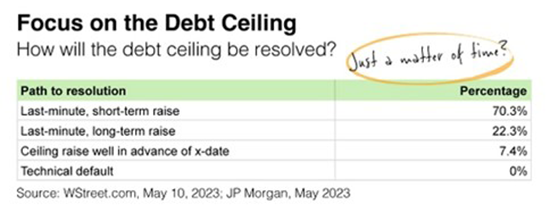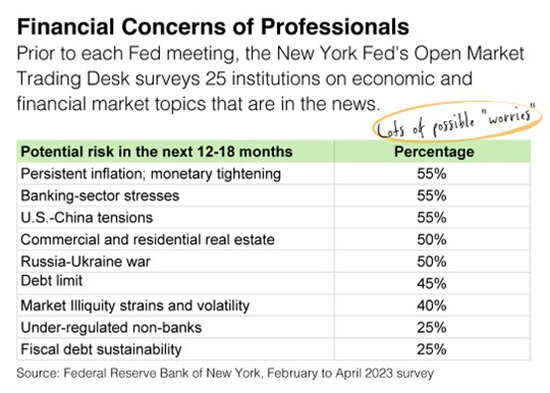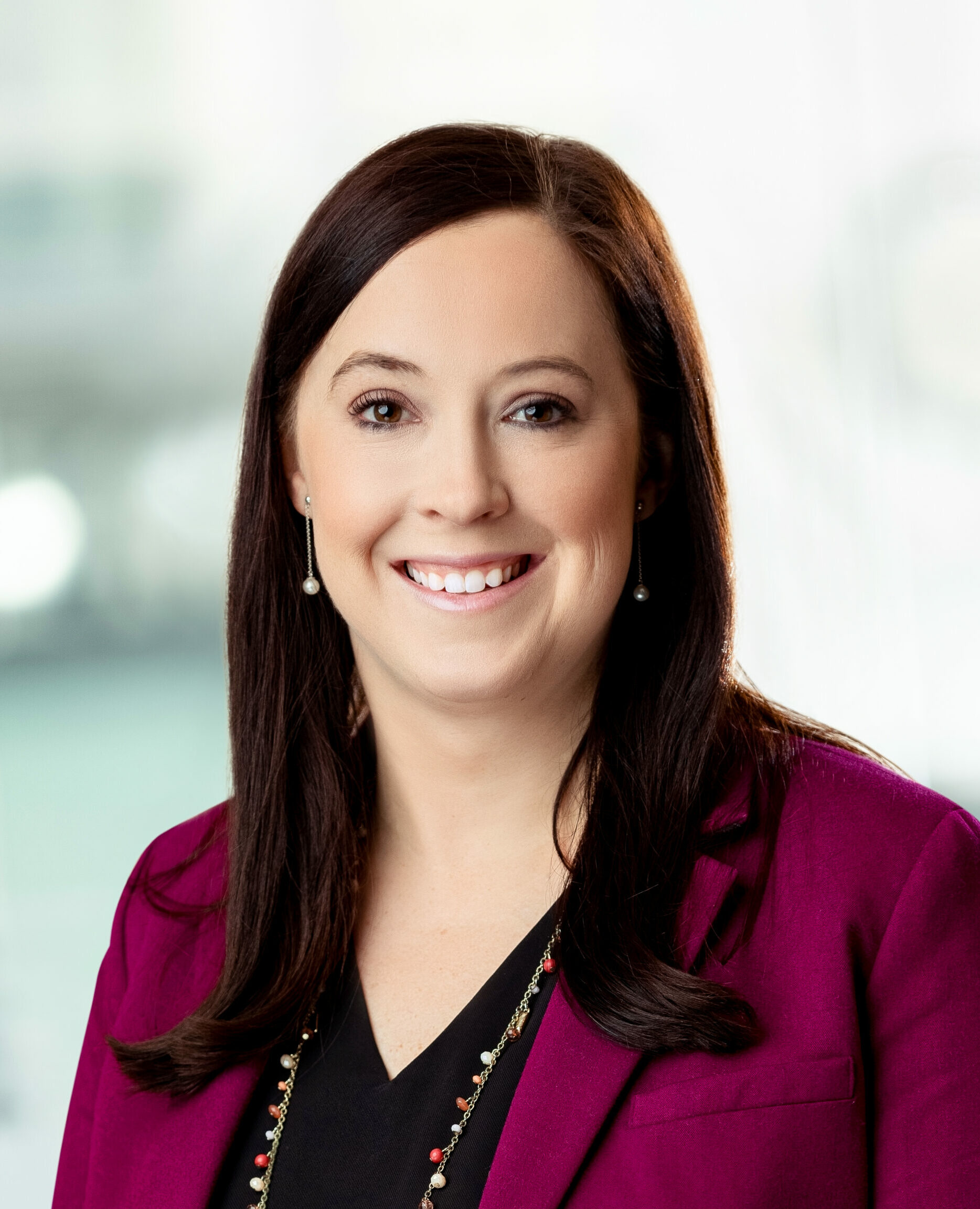
Wall Street Focuses on Debt Ceiling
Wall Street Focuses on Debt Ceiling
Would it surprise you to hear that investors have moved past worrying about inflation? They have, at least for now.
Wall Street has shifted its attention to Washington’s budget negotiations and how the debt ceiling will be resolved. But how long will that shift in focus last? As you can see from the accompanying table, 100% of people surveyed by JP Morgan anticipate it will get resolved in the next few weeks.

So after Wall Street moves past the debt ceiling, what’s next?
Attention may come back around to inflation and the Fed’s monetary policy. As you can see from the other table, that’s what 25 institutional investors surveyed by the New York Fed ranked as one of their top concerns for the next 12-18 months. But banking-sector stresses and the U.S.-China tensions also could come into focus. Or maybe attention will shift to real estate. Or perhaps Russia-Ukraine.

Do you see the pattern? Wall Street always has to have something to worry about. That’s where the expression, “Wall Street climbs a wall of worry” originated. It means financial markets continue to navigate an endless stream of economic and political uncertainty.
I’m watching the debt ceiling negotiations and keeping an eye on how the Fed is managing inflation with its monetary policy. If anything comes up that changes my long-term outlook, I’ll let you know. But for now, let’s leave the worrying to the “experts.”
Related Topics
Disclosures: Please remember that past performance may not be indicative of future results. Different types of investments involve varying degrees of risk, and there can be no assurance that the future performance of any specific investment, investment strategy, or product (including the investments and/or investment strategies recommended or undertaken by Concord Wealth Partners, or any non-investment related content, made reference to directly or indirectly in this newsletter will be profitable, equal any corresponding indicated historical performance level(s), be suitable for your portfolio or individual situation, or prove successful. Due to various factors, including changing market conditions and/or applicable laws, the content may no longer be reflective of current opinions or positions. Moreover, you should not assume that any discussion or information contained in this newsletter serves as the receipt of, or as a substitute for, personalized investment advice from Concord Wealth Partners. To the extent that a reader has any questions regarding the applicability of any specific issue discussed above to his/her individual situation, he/she is encouraged to consult with the professional advisor of his/her choosing. Concord Wealth Partners is neither a law firm, nor a certified public accounting firm, and no portion of the newsletter content should be construed as legal or accounting advice. A copy of Concord Wealth Partners’ current written disclosure Brochure discussing our advisory services and fees is available upon request or on our website. Please Note: If you are a Concord Wealth Partners client, please remember to contact Concord Wealth Partners, in writing, if there are any changes in your personal/financial situation or investment objectives for the purpose of reviewing, evaluating, and/or revising our previous recommendations and/or services, or if you would like to impose, add, or to modify any reasonable restrictions to our investment advisory services. Concord Wealth Partners shall continue to rely on the accuracy of information that you have provided. Please Note: If you are a Concord Wealth Partners client, please advise us if you have not been receiving account statements (at least quarterly) from the account custodian.



